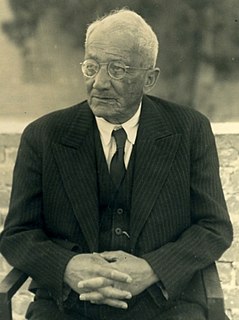A Quote by Mencius
There is the work of great men and there is the work of little men. Therefore it is said, 'Some labor with their minds and some labor with their strength. Those who labor with their minds govern others; those who labor with their strength are governed by others.'1 Those who are governed by others support them; those who govern them are supported by them. This is a universal principle.
Related Quotes
It would be well for those interested to reflect whether there now exists, or ever has existed, a wealthy and civilized community in which one portion did not live on the labor of another; and whether the form in which slavery exists in the South is not but one modification of this universal condition... Let those who are interested remember that labor is the only source of wealth, and how small a portion of it, in all old and civilized countries, even the best governed, is left to those by whose labor wealth is created.
History is a great teacher. Now everyone knows that the labor movement did not diminish the strength of the nation but enlarged it. By raising the living standards of millions, labor miraculously created a market for industry and lifted the whole nation to undreamed of levels of production. Those who attack labor forget these simple truths, but history remembers them.
In the form of security and sufficiency for the men who labor to the profit of others, and in the form of registering and controlling them in the form of an organized public supervision of their labor, slavery is already afoot. When slavery shall succeed it will succeed through the acquiescence of those who will be enslaved, for they will prefer sufficiency and security with enslavement, to freedom, responsibility, insecurity and the threat of insufficiency.
If they do not share equally enjoyments and toils, those who labor much and get little will necessarily complain of those who labor little and receive or consume much. But indeed there is always a difficulty in men living together and having all human relations in common, but especially in their having common property.
As in labor, the more one doth exercise, the more one is enabled to do, strength growing upon work; so with the use of suffering, men's minds get the habit of suffering, and all fears and terrors are not to them but as a summons to battle, whereof they know beforehand they shall come off victorious.
Those who obtain riches by labor, care, and watching, know their value. Those who impart them to sustain and extend knowledge, virtue, and religion, know their use. Those who lose them by accident or fraud know their vanity. And those who experience the difficulties and dangers of preserving them know their perplexities.








































